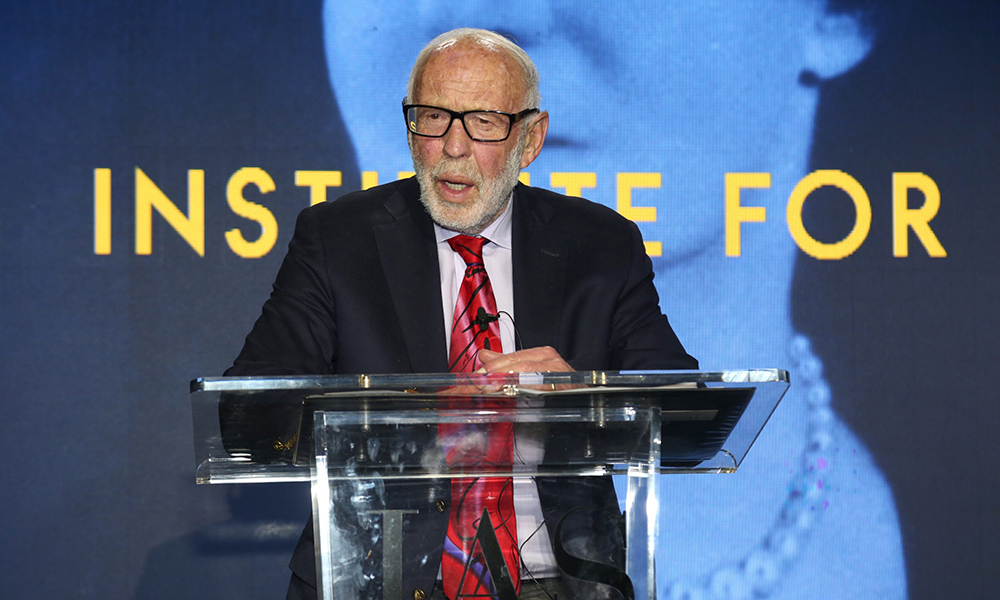
“量化之王”、文艺复兴科技公司(Renaissance Technologies)的创始人詹姆斯·西蒙斯于2024年5月10日去世,享年86岁。他凭借自己的数学天才和从数据中发现规律的能力,永远地改变了华尔街。
虽然他的交易和定量分析策略受到了严格审查,但多年来他也分享了一些管理和领导力方面的经验。2010年,他提出了五项“指导原则”:
1. “尝试一些新事物;不要随波逐流。我不是一个跑得很快的人。如果在研究同一个问题的N个人中,我只是其中之一,那么我获胜的可能性就很小。如果我能够在新领域发现新问题,那我就有机会胜出。”
2. “与最聪明的人为伍。当你看到这样的人才时,尽自己所能让他们加入你的团队。这样可以扩大你的影响力,与优秀的人共事通常很有趣。”
3. “以美为导向。这显然适用于做数学题或写诗歌,但也适用于打造一个能够实现高效运行、出色完成使命的组织。”
4. “不要轻言放弃。有些事情所需的时间远远超过人们最初的预期。如果追求的目标值得为之奋斗,那就坚持下去。”
5. “希望好运降临!”
2022 年,西蒙斯在阿贝尔奖(Abel Prize)组织的一次活动上发表演讲时,重申了这五项原则。他还指出,文艺复兴科技公司在成立之初聘用了统计学家、物理学家、天文学家和数学家,并补充道:“我想说的是,你可以教物理学家金融,但无法教金融人士物理。”
《华尔街日报》(Wall Street Journal)的格雷戈里·祖克曼曾经写过一本关于西蒙斯的书。他说,事实上,文艺复兴科技公司很少招聘人手来填补空缺,而是寻找顶尖人才(假定他们能够找到改进公司量化交易的方法)。但他激励杰出人才的能力也很突出。一位前高管告诉祖克曼:“这无关他的天才,而关乎他管理人才的能力。”
祖克曼还表示,西蒙斯在文艺复兴科技公司保持着扁平化的组织结构,鼓励进行合作和保持透明。这一理念也延伸到了文艺复兴科技公司的薪酬上,该公司根据其“大奖章”基金(Medallion Fund)的业绩而不是个人成就来支付员工薪酬。
另一位前高管告诉祖克曼:“按照华尔街的标准,詹姆斯并不贪婪。因此,高层人员大多都很开心,不会互相争斗。”
西蒙斯于2010年辞去文艺复兴科技公司首席执行官的职务,并于2021年卸任董事长一职,同时将更多的注意力转向慈善事业。
在2019年麻省理工学院(MIT)的一系列演讲里,他回顾了自己的职业生涯,重点介绍了他一路走来引入金融领域的人才。
西蒙斯说:“我最大的贡献是招聘了出类拔萃的年轻人。我们有出色的领导者,他们将再接再厉,把握好每一次机遇。”(财富中文网)
译者:中慧言-王芳
“量化之王”、文艺复兴科技公司(Renaissance Technologies)的创始人詹姆斯·西蒙斯于2024年5月10日去世,享年86岁。他凭借自己的数学天才和从数据中发现规律的能力,永远地改变了华尔街。
虽然他的交易和定量分析策略受到了严格审查,但多年来他也分享了一些管理和领导力方面的经验。2010年,他提出了五项“指导原则”:
1. “尝试一些新事物;不要随波逐流。我不是一个跑得很快的人。如果在研究同一个问题的N个人中,我只是其中之一,那么我获胜的可能性就很小。如果我能够在新领域发现新问题,那我就有机会胜出。”
2. “与最聪明的人为伍。当你看到这样的人才时,尽自己所能让他们加入你的团队。这样可以扩大你的影响力,与优秀的人共事通常很有趣。”
3. “以美为导向。这显然适用于做数学题或写诗歌,但也适用于打造一个能够实现高效运行、出色完成使命的组织。”
4. “不要轻言放弃。有些事情所需的时间远远超过人们最初的预期。如果追求的目标值得为之奋斗,那就坚持下去。”
5. “希望好运降临!”
2022 年,西蒙斯在阿贝尔奖(Abel Prize)组织的一次活动上发表演讲时,重申了这五项原则。他还指出,文艺复兴科技公司在成立之初聘用了统计学家、物理学家、天文学家和数学家,并补充道:“我想说的是,你可以教物理学家金融,但无法教金融人士物理。”
《华尔街日报》(Wall Street Journal)的格雷戈里·祖克曼曾经写过一本关于西蒙斯的书。他说,事实上,文艺复兴科技公司很少招聘人手来填补空缺,而是寻找顶尖人才(假定他们能够找到改进公司量化交易的方法)。但他激励杰出人才的能力也很突出。一位前高管告诉祖克曼:“这无关他的天才,而关乎他管理人才的能力。”
祖克曼还表示,西蒙斯在文艺复兴科技公司保持着扁平化的组织结构,鼓励进行合作和保持透明。这一理念也延伸到了文艺复兴科技公司的薪酬上,该公司根据其“大奖章”基金(Medallion Fund)的业绩而不是个人成就来支付员工薪酬。
另一位前高管告诉祖克曼:“按照华尔街的标准,詹姆斯并不贪婪。因此,高层人员大多都很开心,不会互相争斗。”
西蒙斯于2010年辞去文艺复兴科技公司首席执行官的职务,并于2021年卸任董事长一职,同时将更多的注意力转向慈善事业。
在2019年麻省理工学院(MIT)的一系列演讲里,他回顾了自己的职业生涯,重点介绍了他一路走来引入金融领域的人才。
西蒙斯说:“我最大的贡献是招聘了出类拔萃的年轻人。我们有出色的领导者,他们将再接再厉,把握好每一次机遇。”(财富中文网)
译者:中慧言-王芳
Jim Simons, the legendary “Quant King” who founded Renaissance Technologies, died on May 10 at the age of 86, after forever changing Wall Street with his genius for math and finding patterns in data.
While his trading and quantitative analysis strategies have been heavily scrutinized, he has also shared several management and leadership lessons over the years. In 2010, he laid out five “guiding principles“:
1. “Do something new; don’t run with the pack. I am not such a fast runner. If I am one of N people all working on the same problem, there is very little chance I will win. If I can think of a new problem in a new area, that will give me a chance.”
2. “Surround yourself with the smartest people you can find. When you see such a person, do all you can to get them on board. That extends your reach, and terrific people are usually fun to work with.”
3. “Be guided by beauty. This is obviously true in doing mathematics or writing poetry, but it is also true in fashioning an organization that is running extremely well and accomplishing its mission with excellence.”
4. “Don’t give up easily. Some things take much longer than one initially expects. If the goal is worth achieving, just stick with it.”
5. “Hope for good luck!”
During a 2022 speech at an event organized by the Abel Prize for mathematics, Simons echoed those five principles and also noted that RenTech hired statisticians, physicists, astronomers, and mathematicians in its early years, adding that “I like to say that you can teach a physicist finance, but you can’t teach a finance person physics.”
In fact, RenTech rarely hired to fill a need and instead sought top talent with the assumption they would find ways to improve its quant trading, according to the Wall Street Journal‘s Gregory Zuckerman, who wrote a book about Simons. But his ability to motivate all those brilliant minds also stood out. A former senior executive told Zuckerman that “It’s not his genius. It’s his ability to manage genius.”
Zuckerman also said Simons maintained a flat organizational structure at RenTech that encouraged collaboration and transparency. That philosophy also extended to RenTech’s compensation, in which employees were paid based on its Medallion Fund’s results rather than focusing on individual achievements.
“By Wall Street standards, Jim wasn’t greedy,” another former executive told Zuckerman. “So senior guys were mostly very happy and didn’t fight with each other.”
Simons resigned as RenTech’s chief executive in 2010 and retired as chairman in 2021, while turning more attention to his philanthropy.
In a series of talks at MIT in 2019, he reflected on his career, highlighting the people he brought onboard along the way.
“My biggest contribution was to hire great young people into the business,” he said. “We have great leaders, and they carried on. They haven’t missed a beat.”






